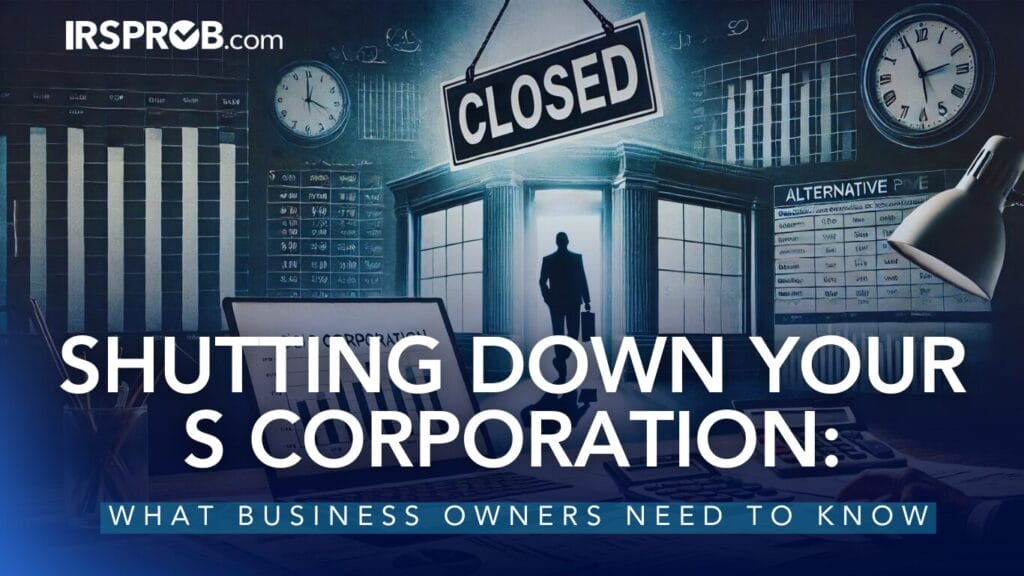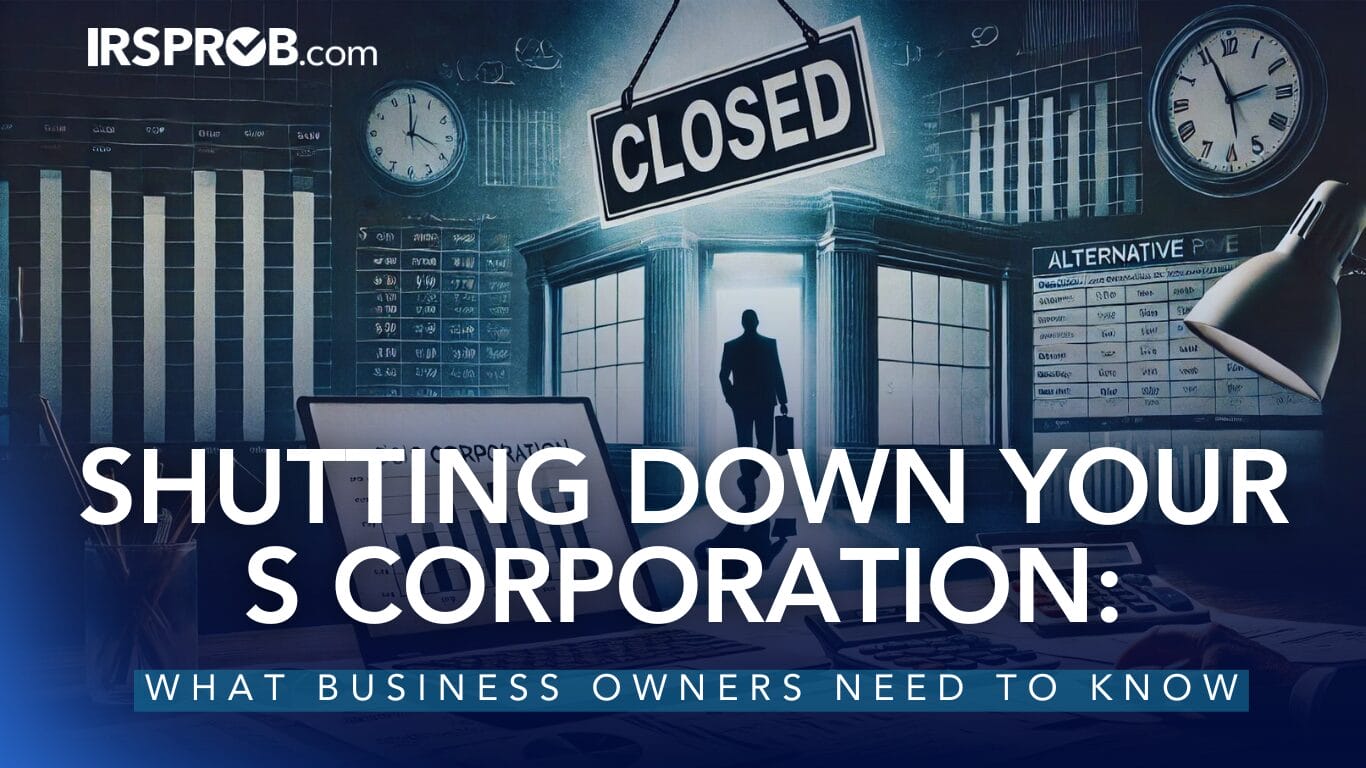
If you’re a business owner operating as an S corporation and considering shutting down your company, it’s crucial to understand the federal income tax implications for both the corporation and its shareholders. Shutting down an S corporation is not as simple as locking the doors; it involves several tax considerations that can significantly impact your financial outcomes. Here’s a guide to help you navigate this process.
Scenario 1: Stock Sale
One common method to close an S corporation is by selling all the company stock. In this scenario, the sale of the stock results in a capital gain for the shareholders. If you’ve held the shares for more than one year, you’ll benefit from long-term capital gain tax rates, which are typically lower than ordinary income tax rates.
- Long-Term Capital Gains: As of 2024, the maximum federal rate for long-term capital gains is 20%. However, this rate applies only to those with high incomes:
- Net Investment Income Tax (NIIT): Passive investors might owe an additional 3.8% NIIT on the capital gain. Active participants in the business are generally exempt from this tax.
- State Income Tax: Don’t forget that state income tax may also apply to the capital gains from the sale.
This method allows you to potentially walk away from the business with fewer complications, but it may not always be the most tax-efficient approach, especially if the business has significant assets.
Scenario 2: Asset Sale and Liquidation
Another common approach is selling the corporation’s assets and then liquidating the business. This method involves several steps, each with specific tax consequences.
- Asset Sale Tax Basics:
- Recognizing Gains/Losses: The S corporation will recognize taxable gains or losses on the sale of its assets. As a pass-through entity, these gains and losses are passed through to the shareholders and must be reported on their personal tax returns via a Schedule K-1.
- Depreciation Recapture: Gains attributable to certain types of depreciation may be taxed at higher ordinary income rates. For instance, gains from the sale of assets where Section 179 or bonus depreciation deductions were claimed are taxed as ordinary income.
2. Liquidating Distribution:
- Taxable Capital Gains/Losses: Once the assets are sold and liabilities are paid, the remaining cash is distributed to shareholders. If the cash exceeds the tax basis of your shares, it results in a taxable capital gain. Conversely, if the cash is less than the tax basis, it results in a capital loss.
- Passive Losses: If you have suspended passive losses from previous years, they may become deductible in the year of liquidation, offering a potential tax benefit.
Key Considerations for an Asset Sale
- Allocating the Sale Price: How you allocate the sale price among the various assets can have a significant impact on your tax liability. Generally, it’s advantageous to allocate more of the sale price to assets that generate long-term capital gains (such as land and buildings) and less to assets that generate ordinary income (such as inventory and equipment).
- Section 1250 Recapture: If your S corporation sells depreciable real estate, part of the gain might be recaptured as ordinary income under Section 1250. This applies to the amount of gain equal to the additional depreciation claimed on the property.
- Unrecaptured Section 1250 Gain: This gain is taxed at a flat 25% federal rate, but it can be offset by Section 1231 losses or capital loss carryovers.
Compliance and Reporting
Once the S corporation’s assets are sold, and liquidation is complete, you must report the transactions to the IRS. This includes:
- Form 8594: This form is used to report the allocation of the sale price to the specific assets.
- Final Tax Return: File a final federal income tax return using Form 1120-S, including the final Schedule K-1 for each shareholder.
Conclusion
Shutting down an S corporation is a complex process that involves careful planning and consideration of various tax implications. Whether you choose to sell your stock or liquidate the company’s assets, understanding the tax consequences can help you minimize your tax liability and avoid potential pitfalls. Consulting with a tax advisor who specializes in S corporations is highly recommended to ensure a smooth transition and optimal financial outcome.
If you need further assistance or have specific questions about shutting down your S corporation, feel free to contact us at IRSProb.com, where we specialize in helping business owners navigate the complexities of tax and compliance issues.









